
Browse our fun-packed, helpful plant-based articles, and delve deeper into this healthy, sustainable lifestyle!




Restful Nights: Improve Sleep During Menopause With a Vegan Diet
Plant-Based Lifestyle Tips For Women
Author: Plant-Based Susy
Eating More Plant-Based Whole Foods Can Help You Improve Your Sleep Quality
Researching sleep quality, we were shocked to discover that the world is faced with a sleep loss epidemic. According to the World Health Organization (WHO), adults worldwide tend not enjoy the recommended amount of sleep.
Many of these adults are women who experience disruptions at night because of hormonal changes. If you’re one of the many struggling with insomnia, you can improve your sleep quality naturally with a plant-based diet for menopause.
A plant-based diet will improve your sleep quality during menopause by stimulating sleep-inducing hormones, including tryptophan, serotonin, and melatonin. A vegan diet reduces inflammation and increases relaxants. Include soya products to mimic oestrogen (estrogen), relieving unpleasant menopausal symptoms.
We’ve all experienced the unpleasant side-effects of a poor night’s sleep: irritability, inability to concentrate, and craving for carbs and sugar. It may surprise you to know that your diet is one of the most critical impacts on your restless nights.
We’ve done research to show you that eating more plant-based foods can help you improve your sleep quality — let’s dive in.

Table of Contents:
Why Do Menopausal Women Sleep Badly?
Did you know that at least 57% of women in menopause are chronically sleep-deprived? More than half the women you work with or chat with desperately need a good night’s rest, defined as receiving seven or more hours of shuteye at night without frequent waking.
One of the foremost causes of poor sleep in British women is hormonal changes during peri-menopause when levels of the two major female hormones, oestrogen and progesterone, decline.
Oestrogen or estrogen as it's known to American women, controls the menstrual cycle, pregnancy, and menopause. Progesterone, the so-called relaxing hormone, is particularly prevalent during pregnancy and plays a role in sleep cycles. A drop in progesterone levels is incredibly challenging because it is a sleep-inducing hormone.
The effects of hormonal decrease include the following:
Insomnia (a sleep disorder with the inability to fall and stay asleep)
Waking very early
Frequent waking and broken sleep
Non-restorative sleep (inadequate REM or deep sleep)
Shorter sleep time
Sleep apnea
Hot flushes
Night sweats
Restless leg syndrome
Joint pain
Frequent need to urinate
Peri-menopausal and menopausal women also experience emotional symptoms that affect sleep:
Depression
Mood swings
Anxiety
Specific anxiety about sleeplessness
In addition, menopause often occurs at a time of life when women are juggling work responsibilities, children moving into adulthood, elderly parents, and personal reflections on ageing, all of which add to your stress and poor sleep quality.
When you’re younger, your body can weather the impact of a few nights of insufficient sleep. However, chronic poor sleep — whether caused by stress, poor eating habits, or menopause — has severe consequences for your health, especially as you age.
Poor and limited sleep can lead to daytime drowsiness, irritability, poor concentration, forgetfulness, mood changes, and weight gain. Chronic insomniacs are more likely to have automobile accidents, falls, impaired work productivity, and low quality of life.
Longer-term effects of poor sleep quality include a weakened immune system and the risk of anxiety, dementia, depression, stroke, obesity, diabetes, and heart disease.
If you are struggling with the unpleasant symptoms of menopause, we sympathise, and Vegan Susy is here to help! Try reading Plant-Powered Relief: Managing Menopause Symptoms with a Vegan Diet.
How To Improve Sleep Quality During Menopause
It is imperative to improve your sleep quality if you suffer from chronic sleep deprivation. Typical treatments during menopause include:
Hormone replacement therapy (HRT)
Cognitive behavioural therapy (CBT)
Anti-depressants and anti-psychotics
Prescription or over-the-counter sleeping pills
However, if you would prefer a natural approach to menopause, including improving your sleep quality, you have options like herbal remedies, acupuncture, and regular exercise. However, Vegan Susy recommends a plant-based diet.

Improving Sleep Quality With a Quality Plant-Based Diet
A wholesome plant-forward eating plan can help improve sleep quality naturally during menopause and prevent you from miserably counting sheep.
One natural approach to improving sleep and overall health is to improve your diet. For example, studies show that eating a diet high in saturated fats and sugars but low in fibre results in lighter, broken sleep.
Similar academic research shows that “whole diets rich in fruits, vegetables, legumes… have been shown to predict favourable outcomes.”
Fighting-For-You Phytoestrogen
The first plant-based food that helps with sleep is soya. Soya contains phytonutrients or isoflavones like phytoestrogen. One of the causes of menopause is the decline in oestrogen, and this phytonutrient mimics the activity of oestrogen in the female body.
Eating soya can help menopausal women by easing menopausal symptoms like hot flushes, restless leg syndrome, and night sweats, which hamper quality sleep.
The Role of Melatonin
Plant foods improve the duration and quality of sleep because they contain or stimulate the sleep-inducing hormone melatonin.
The pineal gland secretes melatonin at bedtime, which induces and maintains sleep. The body produces melatonin by converting tryptophan, which is found in plant protein, into serotonin and then into melatonin.
Familiar sources of tryptophan protein are soy, legumes, seeds, nuts, cacao, and cherries. Scientists have found that women who ate plant protein slept significantly better than those who ate animal protein.
Plant-based carbohydrates are also valuable sleep aids as they stimulate your body to release insulin and then serotonin, which helps you fall and remain asleep.
Crucial Calcium
Calcium is another essential nutrient you ingest through a plant-based diet, such as spinach, kale, and Swiss chard. It is vital for giving the brain access to the tryptophan in plant proteins, as are B vitamins.
Vital B Vitamins
Low vitamin B levels are associated with low serotonin levels, poor quality of sleep, depression, low mood, and sleep disorders. These are found in plant-based carbohydrates like sweet potatoes, oatmeal, and brown rice.
Fantastic Fibre
Fiber in fruits and vegetables also helps with sleep quality by reducing inflammation, modulating gut bacteria and improving hormonal triggers that cause you to enter deep, low-wave sleep.
Mighty Minerals
The minerals magnesium and potassium help with relaxation and restful sleep and are common in fruits and veggies, including bananas, avocados and almonds. Magnesium also prevents frequent waking, and a magnesium deficiency can cause insomnia.
Selenium is another mineral necessary for you to relax. Try eating Brazil nuts to increase your intake. Additionally, a plant-based diet reduces inflammation and improves your gut microbiome, both improving sleep quality.
Weighty Matters
An additional way a plant-based diet can aid in sleep quality is through weight loss and the weight management it encourages.
Following a healthy vegan lifestyle improves body composition, including a decrease in BMI and body fat. Women with a healthy weight are unlikely to develop sleep apnea and other sleep disorders.
Check out Plant-Based Weight Management: Strategies for Women Over 40 for more information on plant-based weight loss strategies.
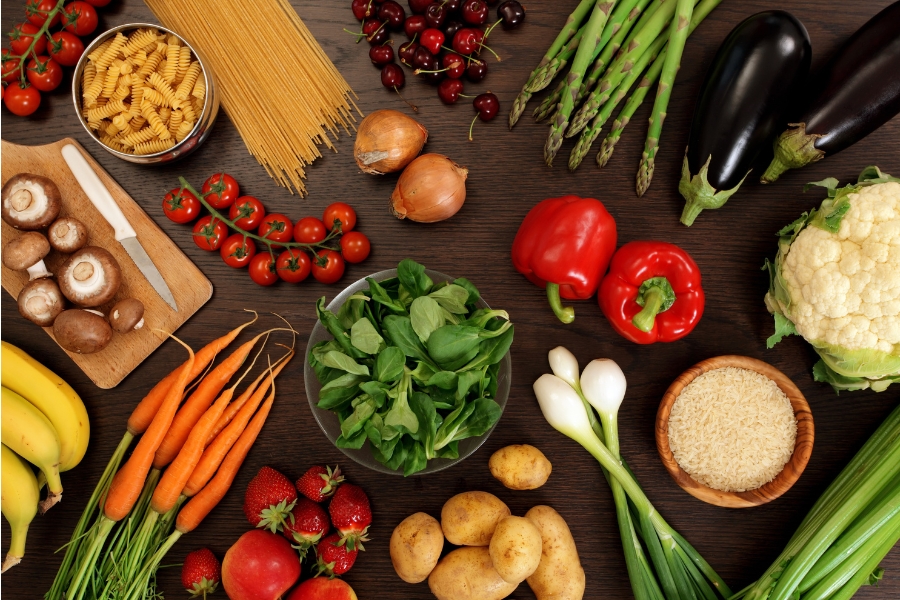
What To Include in Plant-Based Diet for Menopause
Research clearly shows that women in peri-menopause and menopause can improve their sleep quality naturally with a plant-based diet. Let’s look at what foods and meals this diet should include:
Nuts and seeds contain magnesium, zinc, selenium, tryptophan, and plant proteins to stop midnight snacking.
Cherries and kiwifruit contain melatonin, which helps to regulate your sleep cycle.
Bananas are extremely rich in potassium, magnesium, and tryptophan.
Chamomile and valerian have anti-inflammatory and relaxing properties.
Include plenty of whole grains like oatmeal, organic corn, and ancient grains (quinoa, farro, etc.) as these are rich in plant protein, carbohydrates, fibre, and vitamin B6.
Legumes contain plant protein, carbohydrates, and fibre.
Soya and mushrooms are full of phytonutrients and plant protein power.
Leafy greens like lettuce, spinach, parsley and seaweed contain tryptophan, calcium, iron, magnesium, potassium, and vitamin B.
Fruit that contains sleep-inducing fibre includes pomegranates, tomatoes, cherries and berries.
A Sample Plant-Based Eating Plan for Menopause
To improve your sleep quality, you don’t need to only eat the appropriate nutrients just before bed. Include sleep-inducing nutrients as part of a plant-based eating plan throughout the day to get the best results.
Putting these foods together in a daily eating plan is simple. Let’s look at examples of different plant-based meals to help you improve your sleep quality in menopause.
For a more detailed eating plan, look at Nourish & Thrive: Simple Vegan Meal Plan for Women Over 40.
Breakfast
Enjoy a small bowl of oatmeal with unsweetened soya milk, a handful of fresh berries and a sprinkle of chopped nuts.
Homemade granola with almonds, walnuts, and pumpkin, sunflower and sesame seeds is a nutritious breakfast paired with soya milk and fresh berries.
Slice a potassium-rich banana onto peanut butter wholemeal toast.
Fry up some buckwheat pancakes and drizzle with a fresh berry or cherry sauce.
Lunch
Make a sandwich with wholemeal sourdough bread, avocado, and mixed salad with some hummus on the side.
Enjoy a refreshing bowl of homemade courgette (zucchini) soup with finely chopped fresh mint and a pinch of salt & pepper to taste.
Build a wholesome salad with air --fried tofu, fresh kale, Swiss chard, spinach, and assorted vegetables, like roast sweet potato, bell pepper, butternut, or artichokes.
Toast some wholemeal bread, spread Marmite thinly (or any vitamin-B12 fortified yeast extract) and then smear it with nut butter, top with thinly sliced cucumber. You're welcome.
Dinner
1. Mouthwatering Lentil Tacos:
Sauté diced onions, bell peppers, and garlic until soft. Add cooked lentils and your favourite taco seasoning.
Warm corn tortillas and fill them with the lentil mixture.
Top with fresh salsa, avocado slices, shredded lettuce, and a drizzle of creamy cashew or tahini sauce.
Serve with a side of black beans and cilantro-lime rice for a complete and satisfying meal.
2. Savoury Chickpea Curry:
In a large skillet, sauté chopped onions, garlic, and ginger until fragrant. Add curry powder, cumin, and coriander, then stir in diced tomatoes and coconut milk.
Add cooked chickpeas and simmer until heated through and flavors meld together.
Serve the curry over fluffy basmati rice and garnish with fresh cilantro and a squeeze of lime juice for a burst of flavour.

3. Tempting Veggie Stir-Fry:
Heat 1 tbsp sesame oil in a wok or large skillet and stir-fry your favourite veggies such as bell peppers, broccoli, carrots, and snap peas until crisp-tender.
Add tofu or tempeh for protein and cook until golden brown.
Season with soy sauce, freshly squeezed orange juice, garlic, and ginger, and toss to combine.
Serve over rice or quinoa and sprinkle with sesame seeds and spring onions (scallions) for an extra crunch.
4. Delicious Stuffed Bell Peppers:
Preheat the oven to 375°F (190°C). Cut the tops off bell peppers and remove the seeds and membranes.
In a skillet, sauté diced onions, garlic, and mushrooms until softened. Add cooked quinoa, black beans, corn, diced tomatoes, and taco seasoning.
Stuff the mixture into the bell peppers and place them in a baking dish. Cover with foil and bake for 25-30 minutes, or until peppers are tender.
Remove from the oven, top with sliced avocado, salsa, and a dollop of vegan sour cream, then serve with a side of mixed greens for a colorful and satisfying meal.
Snacks
These could be mid-morning, afternoon, or bedtime snacks.
Snack on a handful of pistachios and cherries to combine both protein and fibre.
Have a couple of crackers and celery sticks with hummus .
Air-pop some popcorn and sprinkle with a pinch of salt and some nutritional yeast for a savoury treat.
Enjoy some fresh fruit, particularly goji berries, cherries, and kiwi. Or have a small glass of unsweetened cherry juice, which is rich in tryptophan.
Have a banana, a couple of Brazil nuts and a warm glass of almond milk.
Sip on a cup of soothing chamomile tea.
Learn more about the benefits of a vegan diet in 10 Unique Benefits of the Plant-Based Diet for Women.
Expert Advice: Plant-Powered Sleep Solutions
According to sleep experts, adopting a plant-based diet can significantly improve sleep quality before, during and after menopause.
Plant foods contain essential nutrients like melatonin, phytoestrogens, calcium, and B vitamins, which play key roles in regulating sleep-wake cycles and promoting relaxation.
By incorporating a variety of fruits, vegetables, legumes, whole grains, nuts, and seeds into their diet, menopausal women can enhance their sleep quality naturally.
Additionally, plant-based foods are rich in antioxidants and anti-inflammatory compounds, which can help alleviate symptoms of menopause and promote overall well-being.
Embracing a plant-based lifestyle offers a holistic approach to managing sleep disturbances during this transitional period.

Finding Rest: A Plant-Based Success Story
As a plant-based nutrition professional now in my early 50s, I've experienced firsthand the transformative power of a healthy plant-based diet on my sleep quality during menopause.
Touch wood, despite the inevitable hormonal changes, I've enjoyed rude health with minimal menopausal symptoms. This hasn't been down to good luck: Adopting a healthy vegan lifestyle not only alleviated my hot flushes and night sweats but also improved my overall sleep patterns and quality of life.
As a welcome bonus, I dropped 30 pounds in less than 6 months, too, mostly from my problem area.
Now, I wake up feeling refreshed and energised, ready to tackle the day ahead. The story of my transformative journey serves as a testament to the profound impact that plant-based nutrition can have on women's health during this transitional phase of life.
Frequently Asked Questions
What is the best diet for sleep disorders in menopause?
A plant-based diet that is rich in fruit, vegetables, legumes, whole grains, nuts, and seeds helps improve sleep quality during menopause.
How does a plant-based diet improve sleep quality?
A vegan diet helps improve sleep quality naturally because plant foods contain or stimulate the sleep-inducing hormone melatonin and phytoestrogen. Other essential nutrients for sleep quality include calcium and B vitamins.
Which foods are best for improving sleep quality?
Nuts like almonds and Brazil nuts; fruits like cherries, banana, and kiwifruit; whole grain like oatmeal and quinoa; legumes and soy; and vegetables like mushrooms, spinach, and lettuce.
What additional habits can help with sleep quality?
Lifestyle changes can aid in menopause-induced sleep disorders. For example, avoid afternoon naps, start winding down an hour before bed, put aside electronic devices, take a bath, drink herbal tea, and have a regular bedtime.
Avoid spicy foods late at night, smoking, alcohol, and caffeinated beverages. Keep your bedroom cool and well-ventilated.
Can a plant-based diet improve sleep during menopause?
Yes, plant-based foods boost melatonin, reduce inflammation, and support hormone balance for restful sleep.
Conclusion:
Hormonal changes cause sleeplessness and poor sleep quality in perimenopausal and menopausal women, reducing their quality of life and weakening their immune systems.
Instead of choosing a chemical or behavioural route, improve your sleep quality naturally by choosing a plant-based diet.
Plant foods contain several nutrients that help you sleep better, including vitamins, minerals, and phytonutrients to stimulate sleep-inducing hormones.

💚 "Happy Plant-Based Eating & Sleeping!" 💚

Plant-Based Susy
Plant-Based Nutrition Professional & Weight Loss Coach
Empower Yourself: Embark on a Delicious Fat Loss Adventure

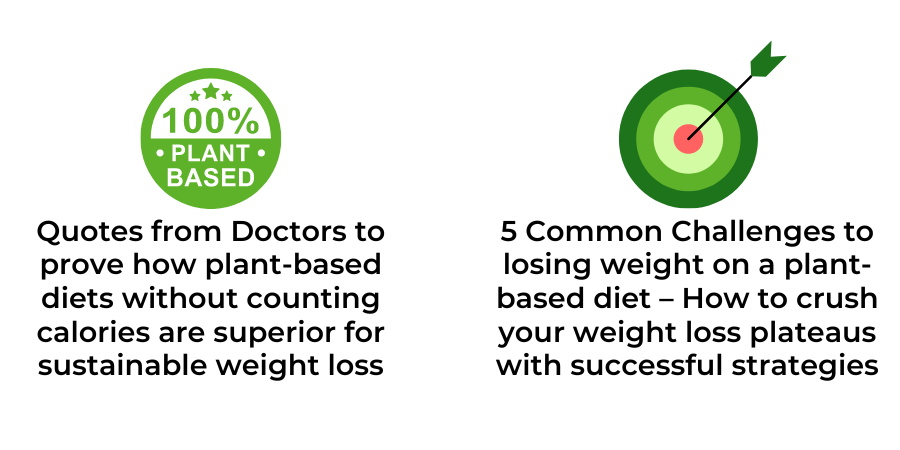
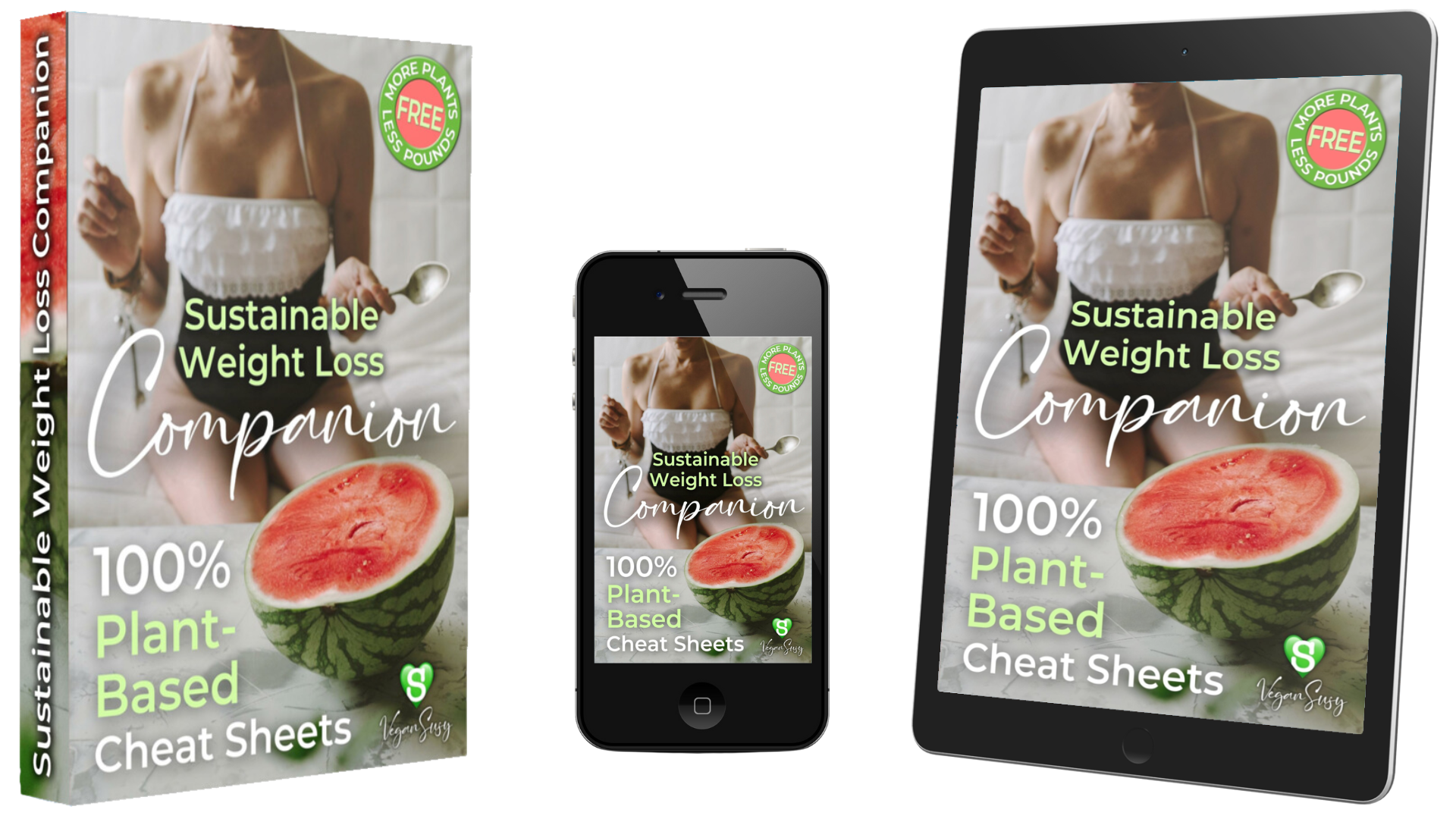
🍉 Get Ready to Jump Start Your Fitness Goals AND DISCOVER A HEALTHIER YOU!
🍉 Let's Make Your Fat Loss & Optimum Health Journey a Delicious Success Story!
🍉 Get The FREE Sustainable Weight Loss Companion eBook and CHEAT SHEETS!
More Free Resources
Unlock Your Transformation Today!
© 2025 VeganSusy Ltd. All Rights Reserved


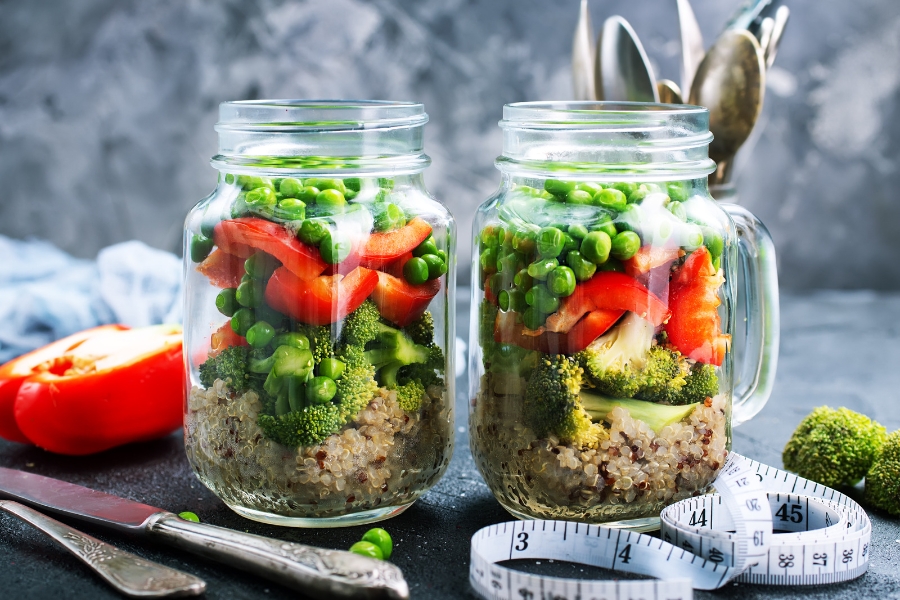
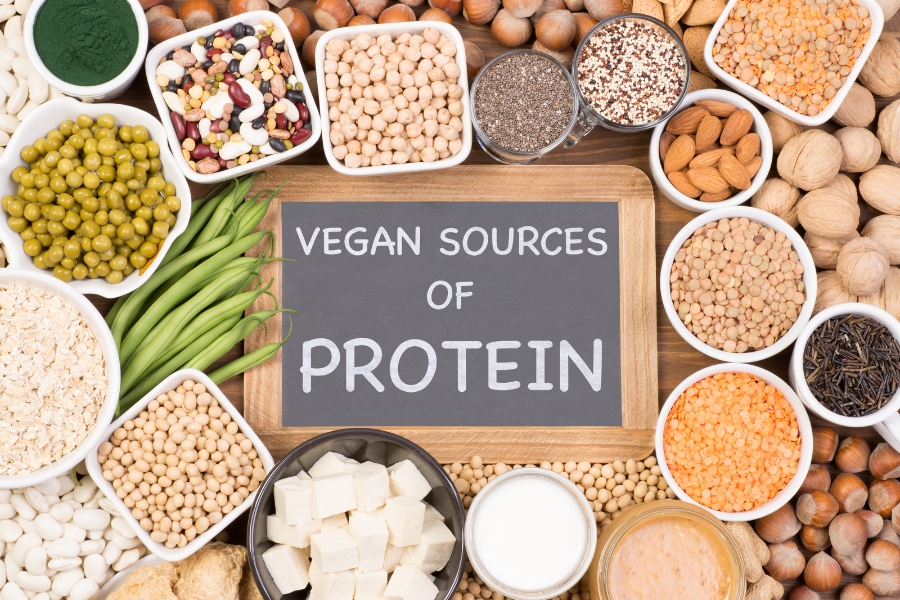







Facebook
Instagram
Youtube
Pinterest